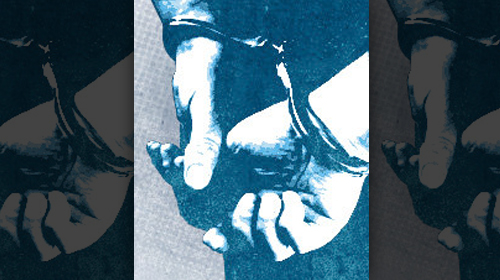Long Island Should Break its Addiction to Incarceration


The issue of over-incarceration in America is gaining traction among state and local law makers – but not, apparently, on Long Island. The New York Civil Liberties Union recently sued Nassau and Suffolk counties, home to the Hamptons’ beach clubs and million-dollar estates, over squalid, life-threatening conditions at their jails.
In Suffolk, inmates say that sewage accumulates in their cells and the tap water is so polluted they jokingly refer to it as “iced tea.” (To hear one inmate talk about his experiences, watch this video.) In Nassau, cuts to medical and mental health services have resulted in five suicides in 22 months, some of which state investigators deemed preventable.
The lawsuits call on the counties to meet minimum constitutional standards on conditions of confinement. But the root cause of the problems plaguing these jails is that they house more than 20,000 people every year. Two simple reforms could alleviate the pressure to tolerate squalor and cut necessary medical services while maintaining public safety.
First, the counties should stop locking up poor people charged with low-level crimes, like traffic violations or simple drug possession, simply because they can’t afford bail. Most people accused of such crimes pose no flight risk or threat to public safety. Yet they are kept in jail for weeks or even months before trial because they cannot afford to post bail of even a few hundred dollars. For those who get convicted, their sentences are often shorter than the time they spent behind bars awaiting trial.
As it turns out, New York law provides numerous options for pre-trial release on conditions that require little or no expense. Other counties around the country have expanded pre-trial supervision outside of jails, such as electronic monitoring and day reporting, cutting their jail populations, improving conditions for those who remain in jail, and saving millions of taxpayer dollars in the process. Last year, New Orleans reformed its pre-trial supervision system, cutting jail beds in half and saving millions of dollars. And just last month, the Los Angeles Sheriff endorsed a report by an independent criminal justice expert recommending swift closure of the infamous Men’s Central Jail, long the home to pervasive abuse of prisoners by sheriff’s deputies. The report’s recommendations include implementing a risk-based pretrial supervision program and expanding its re-entry program for sentenced prisoners. Making better use of these options could ensure that Nassau and Suffolk counties are not needlessly paying to lock people up.
Second, the counties must adequately fund public defenders. Poor defendants receive second-rate justice because their lawyers lack the resources needed to effectively represent them. (The NYCLU has sued Suffolk County, as well as four other New York counties, for their failure to meet the constitutional obligation to provide defense counsel to indigent defendants.) Adequately resourced public defenders keep innocent people free and prevent defendants from needlessly languishing in jail pending trail. They also help ensure that sentences are reasonable and that people who should never be in jail—such as those with addiction problems or serious mental illness—receive cost-effective treatment rather than incarceration.
Unfortunately, for the moment, the counties have got it backwards. Suffolk County is building a new jail to alleviate the overcrowding in its old one. Increasing jail beds is not sustainable or cost-effective. Reducing pre-trial detention would save money and help allow the counties to finally treat people in their custody with basic human dignity.
Learn more about overincarceration: Sign up for breaking news alerts, follow us on Twitter, and like us on Facebook.

